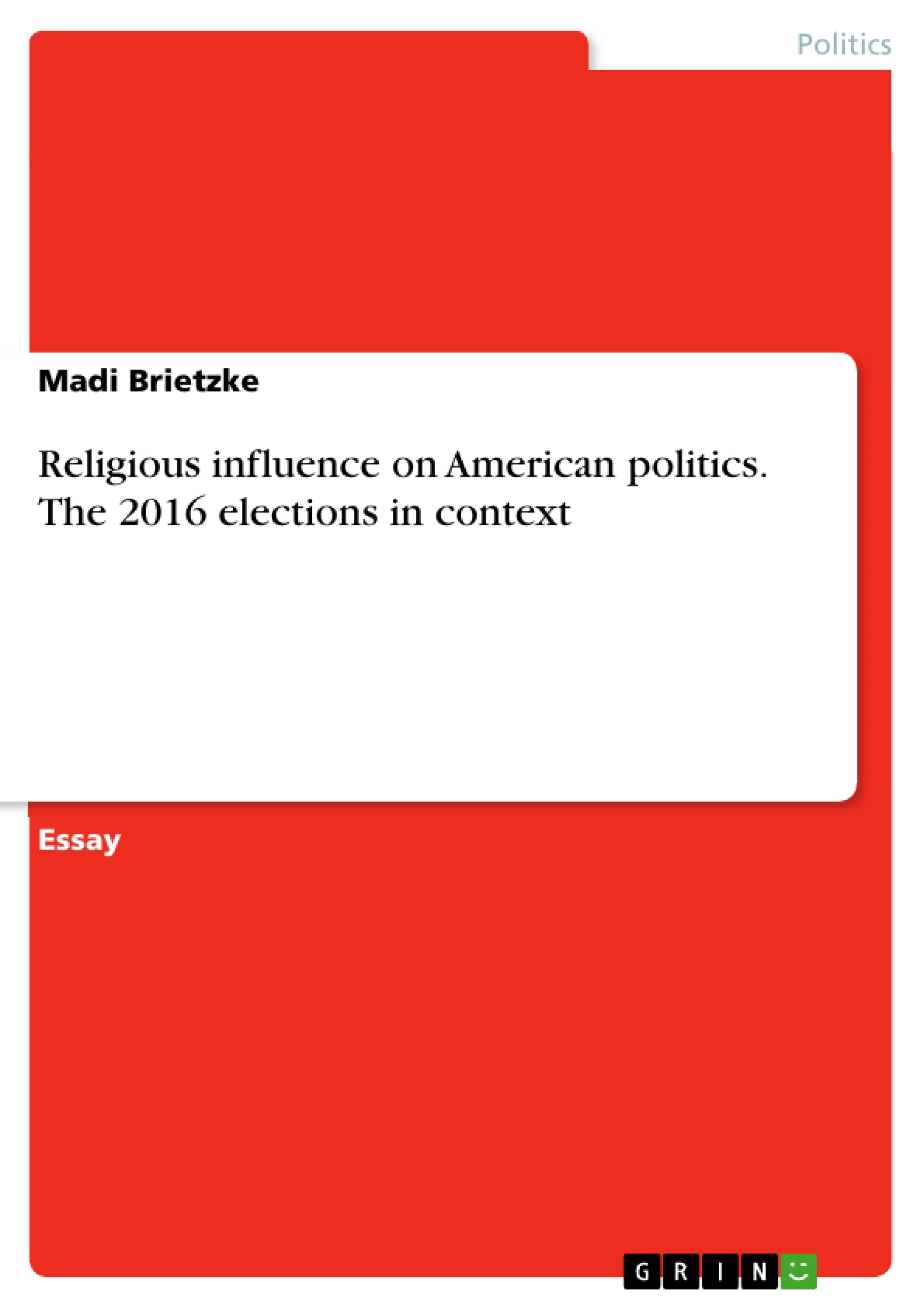The influence of religion on the American political landscape has for a long time been a subject of inquiry. Past findings and existing theories on the sociology of religion maintain two opposing views on the way that religion has influenced contemporary American politics. However, a closer review of the US system reveals an apparent commanding influence of religion on dominant religious rhetoric and voting patterns. Polarization has worked to motivate the masses to approve of foreign policies and even war in the case of the events after the 9/11 attacks when America invaded Iraq and Afghanistan.
At the present polarization continues to be a motivating element for religious rhetoric and possibly voting patterns considering the 2016 elections. Trump being the leading republican presidential contender is an example of the influence of religion in the US politics, considering his wholesale war propaganda on Islam. His stance and political status at the present is going to play a major role in the final outcome. It is based on this premise that we suggest the ongoing influence of religion on American politics in the 2016 US presidential elections will guide the result.
Inhaltsverzeichnis (Table of Contents)
- Introduction
- Background/Literature review
- Cause and Effect
Zielsetzung und Themenschwerpunkte (Objectives and Key Themes)
This text examines the influence of religion on American politics, specifically in the context of the 2016 US presidential elections. It explores how religious beliefs and rhetoric have shaped political discourse and potentially impacted voting patterns.
- The role of religion in shaping political discourse
- The impact of religious beliefs on voting patterns
- The influence of religious rhetoric on political campaigns
- The relationship between religion and political ideology
- The implications of religion for the future of American politics
Zusammenfassung der Kapitel (Chapter Summaries)
The introduction lays out the central argument that religion continues to exert a significant influence on American politics, particularly in the 2016 elections. It highlights the polarization surrounding religious rhetoric and its potential impact on voting patterns, citing Donald Trump's campaign as an example.
The background/literature review section explores various perspectives on the relationship between religion and politics. It examines the historical context of Christian beliefs about democracy and the separation of church and state. The section also delves into Augustine's views on the nature of political systems and the role of Christian leaders within them.
Schlüsselwörter (Keywords)
Religion, politics, American politics, 2016 elections, voting patterns, religious rhetoric, polarization, democracy, Christianity, Augustine, separation of church and state.
Frequently Asked Questions
How did religion influence the 2016 US elections?
Religion played a commanding role through religious rhetoric and by motivating specific voting patterns among polarized groups.
What was Donald Trump's stance on religion during his campaign?
Trump used religious rhetoric, including strong stances against Islam, to appeal to a specific base of religious voters.
What is the historical relationship between Christianity and US democracy?
The text explores the tension between religious beliefs and the constitutional separation of church and state throughout American history.
How does polarization affect religious political discourse?
Polarization motivates the masses to approve of specific policies, such as foreign interventions, based on religious justifications.
Who was Augustine and why is he relevant to US politics?
Augustine's views on the nature of political systems and the role of Christian leaders provide a theoretical background for religious influence in modern politics.
- Citar trabajo
- Madi Brietzke (Autor), 2015, Religious influence on American politics. The 2016 elections in context, Múnich, GRIN Verlag, https://www.grin.com/document/334778



